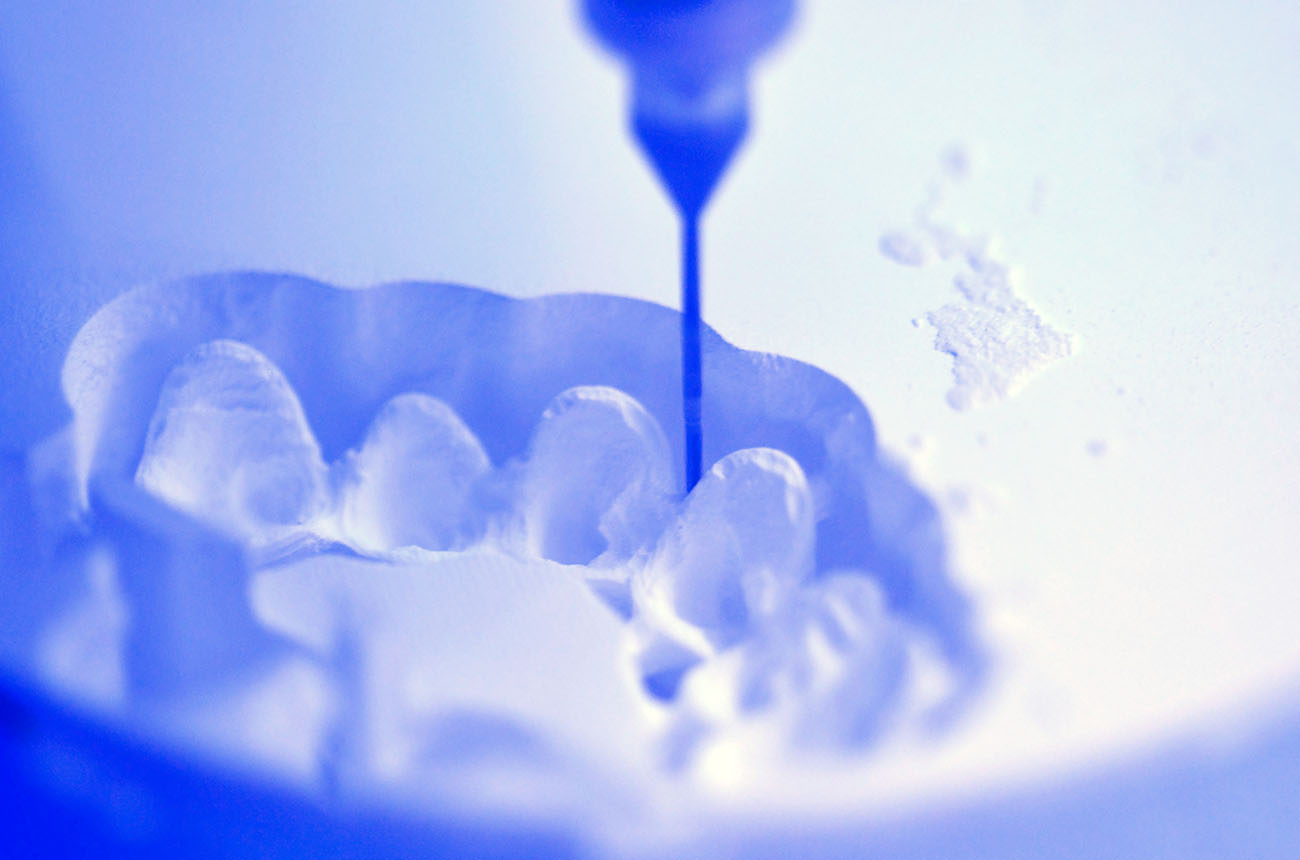
Dental implants have revolutionized the way patients can improve their oral health, offering full functionality, along with a natural-looking and long-lasting smile. It’s important to know the materials of the prosthesis, as they contribute to your overall satisfaction and smile restoration success.
When exploring an upper, lower or full mouth smile restoration, the material of the prosthesis is either Zirconia or PMMA, and Hybridge offers both.
Zirconia is a ceramic material derived from zirconium oxide. Zirconia, a highly durable ceramic material, its exceptional strength often makes it favored by some dentists for full arch restorations.
The zirconia arch is typically manufactured using a Computer-Aided Design (CAD) and Computer-Aided Manufacturing (CAM) process. A digital impression of the patient's mouth is taken, and our Hybridge dental laboratory uses this information to design the zirconia arch. The design is then milled from a block of zirconia using advanced milling machines.
The iconic Hybridge Gen 5 offers a unique fusion of materials combined specifically to provide core strength, ample adjustability and patient comfort. Its milled chrome cobalt substructure supports an outer layer of PMMA that provides a superior combination for most patients.
Protecting your dental implants is essential for their long-term function and durability. Although they’re engineered to mimic natural teeth, they still demand consistent and intentional care. Overlooking daily maintenance can lead to complications that threaten both your implant and your overall oral health. If you’ve invested in dental implants, make sure you’re maintaining them the right way.
Your everyday oral care routine remains the cornerstone of implant maintenance. Treat your implants with the same diligence you give your natural teeth, if not more.